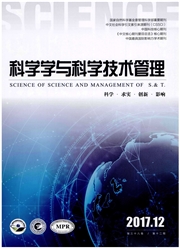

 中文摘要:
中文摘要:
在创业实践中,往往存在经历和禀赋相似的个体,创业行为却存在很大差异的现象。基于此,以情境知识为视角,引入积极情绪,构建了一个有调节的中介效应模型,以尝试解释情境知识与创业行为倾向的具体作用路径和影响机制。并基于197份有效问卷数据,利用Bootstrap方法进行检验。结果表明,潜在创业者情境知识对创业行为倾向存在显著的促进作用;创业诊断在潜在创业者的情境知识与创业行为倾向之间发挥着中介作用,且为互补中介;积极情绪对情境知识、创业诊断和创业行为倾向的中介作用存在正向调节作用,即潜在创业者表现出较高水平的积极情绪时,创业诊断在情境知识与创业行为倾向之间的中介作用较强。
 英文摘要:
英文摘要:
In the entrepreneurial practice, persons who share the same resource endowment and experience with others have no apparently behavior tendency. Therefore, from the perspective of situational knowledge, this paper takes entrepreneurial positive affect into consideration and constructs a moderated mediation effect model in order to explain the path and mechanism between situational knowledge and entrepreneurial behavior tendency. This article analyzes 197 questionnaires with the method of Bootstrap, and findings are as follow: entrepreneurial situational knowledge plays a significant role in improving entrepreneurial behavior tendency; the path that situational knowledge effects entrepreneurial behavior tendency is mediated by entrepreneurial diagnosis; and mediator effect is positive moderated by positive entrepreneurial emotion .
 同期刊论文项目
同期刊论文项目
 同项目期刊论文
同项目期刊论文
 期刊信息
期刊信息
